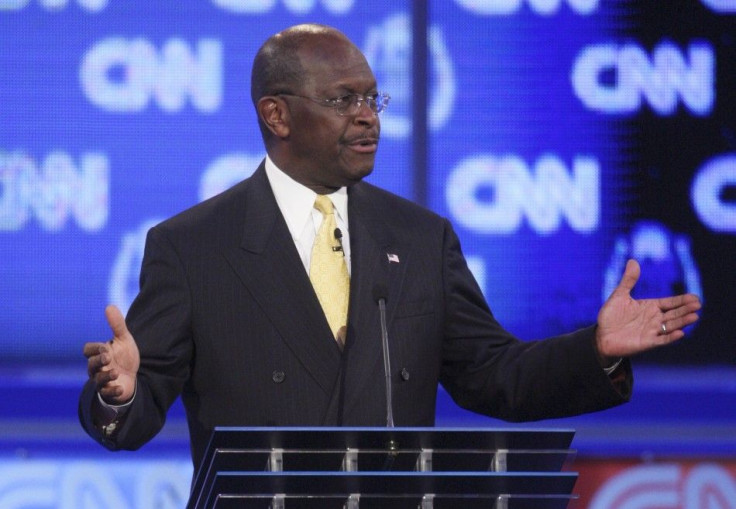Is Herman Cain's '9-9-9' Plan Like Steve Forbes' 1996 Flat Tax?

It's 1996 all over again for Herman Cain, whose 9-9-9 plan bears striking similarities to the ill-fated flat-tax proposal Republican presidential candidate Steve Forbes proposed 15 years ago.
There are some differences, such as that under Forbes' plan, the first $36,000 of individual income would have been tax-exempt. By contrast, under Cain's plan, all income from the first dollar up, excluding capital gains, would be subject to a 9 percent personal income tax. But the idea of a flat tax is not new within the Republican Party, and its track record is underwhelming, to say the least.
The trajectory of Forbes' 1996 presidential campaign is remarkably similar to the trajectory of Cain's campaign thus far: a slow start, followed by a meteoric rise once voters caught wind of his appealingly packaged flat tax proposal. It just sounded good -- but when those voters started to really look at how the plan would affect their taxes, they dropped it as quickly as they had latched on.
No one can say at this point whether Cain's campaign will end the same way. Maybe he will maintain his lead; maybe the flat tax will finally have its day -- but history shows an uphill battle. There are already chinks in the 9-9-9 plan's armor, especially in light of the report from the nonpartisan Tax Policy Center, released on Monday, which found that the plan would increase taxes for 84 percent of Americans.
Cain disputes that number and others like it, but he doesn't offer alternative calculations, which could be a problem for him going forward.
Yogi Berra Is Right: It's Déjà Vu All Over Again
Back in 2005, Washington Post opinion editor Michael Kinsley wrote a scathing op-ed after Forbes published a book titled Flat Tax Revolution: Using a Postcard to Abolish the IRS. It remains startlingly applicable today.
Remember term limits? The flag-burning amendment? The balanced-budget amendment? Kinsley wrote. Each of these has had a moment or two of glory, when Republican politicians, conservative TV and radio hosts, and the Wall Street Journal editorial page all decided simultaneously that implementing this idea was vital to the survival of Western civilization. Polls soon showed a majority of Americans agreeing with them. The idea seemed unstoppable. It had the winds of history behind it. And then the winds died, and the idea went away.
This doesn't always happen. Sometimes big, controversial ideas break suddenly into the public discourse and stay there. But everyone knows that American voters are fickle, and that's on both sides of the aisle. They have a tendency to coalesce suddenly and dramatically around a particular candidate or issue and then lose interest as though nothing had ever happened -- but while they are coalescing, they bristle at any suggestion that the object of their affection is a flavor of the month.
If support for the 9-9-9 plan does dwindle, support for Cain's candidacy will dwindle as well, because his image has become so tied to that one issue.
What do you think? Is Herman Cain's 9-9-9 plan just another fad idea that will fade as people learn more about it, or will it stick around?
© Copyright IBTimes 2024. All rights reserved.




















